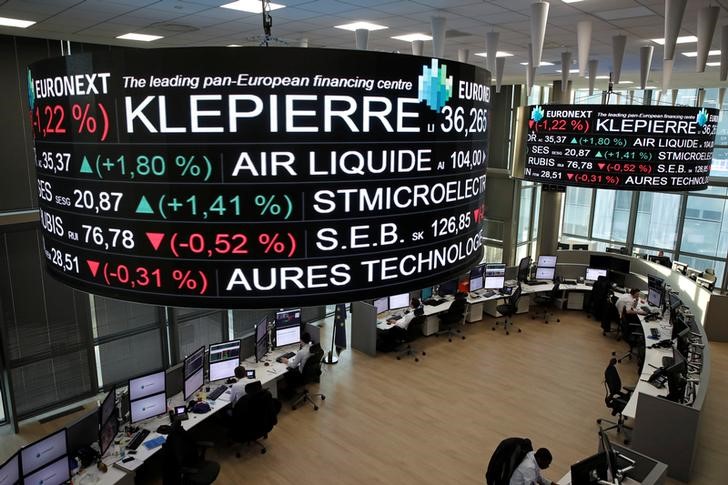FTSE 100 today: closes higher as UK inflation surprises; GBP lower, Ithaca report
Investing.com -- JPMorgan upgraded Arkema (EPA:AKE) from Underweight to Neutral, pointing to improved valuation support despite a challenging earnings environment.
Shares in the French chemicals group have declined roughly 15% this year, falling below JPMorgan’s unchanged December 2026 price target of €65, creating a more balanced risk-reward profile.
“While Arkema’s 2025 adjusted EBITDA and adjusted EPS Bloomberg consensus estimates are down 9% and 24% in the past three months, they are still 5% and 16% higher than our unchanged estimates,” analysts led by Chetan Udeshi wrote in a note.
Arkema shares rose more than 1% in Wednesday trading.
The team believes the buyside is already pricing in a more cautious view following management’s recent cautious comments on current trading. "The buyside estimates for fiscal year 2025 (FY25) are likely closer to our estimates."
At the same time, JPMorgan flagged ongoing concerns with Arkema’s adhesives segment, where performance continues to lag behind peers.
In the first quarter of 2025, volumes in Arkema’s adhesives division fell 2.5% year-on-year (YoY), compared to a 1% rise at H.B. Fuller and a 0.5% gain at Henkel.
“Only part of this weaker performance of AKE can be explained by business mix differences,” the note said, citing possible competitiveness issues and volume losses to optimize product mix.
For the second quarter, the bank forecasts a 4% YoY organic sales decline and a 16% drop in adjusted EBITDA to €380 million. This estimate sits about 6% below Bloomberg consensus.
The expected YoY decline reflects weaker pricing in commodity segments, foreign exchange (FX) headwinds, and muted macro conditions.
JPMorgan’s valuation framework for Arkema remains unchanged, with the €65 price target based on a 2027E EV/EBITDA multiple of 5.7x—around 20% below the company’s 10-year median.
“The discount to the historical multiple reflects the fact that most stocks in the sector are trading at a significant discount to historical multiples due to the prevailing high earnings uncertainty,” analysts said.
Looking ahead, the analysts said they would need to see “clear evidence – which has thus far been evasive – of superior organic volume/earnings growth from significant organic growth investments and synergies from multiple expensive acquisitions of recent years, along with a more disciplined capital allocation” to become more constructive on the stock.
